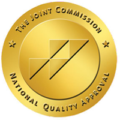Treatment for Addiction to Alcohol in Los Angeles, California

Avedis Detox and Recovery is here to help you go from alcohol addiction to recovery. Alcohol addiction, also known as alcoholism or alcohol use disorder, is a complex and pervasive issue that affects individuals and communities worldwide. It is characterized by a compulsive and uncontrollable desire to consume alcohol, despite its negative consequences on one’s health, relationships, and overall well-being.
Alcohol addiction can develop gradually, often with occasional social drinking that progresses into regular and excessive consumption. Genetic predisposition, environmental influences, and psychological factors can contribute to the development of alcohol addiction.
The physical and mental effects of alcohol addiction are far-reaching. Excessive alcohol consumption can lead to liver damage, cardiovascular problems, impaired cognitive function, and increased risk of accidents and injuries. Additionally, alcohol addiction can cause emotional instability, strained relationships, financial difficulties, and a decline in overall quality of life.
Recognizing the signs and symptoms of alcohol addiction is crucial in seeking timely intervention and treatment. These signs may include an inability to control or limit alcohol intake, experiencing withdrawal symptoms when attempting to quit or cut down, neglecting responsibilities and hobbies due to alcohol use, and continued drinking despite negative consequences.
Understanding Alcohol Addiction
Treatment for alcohol addiction typically involves a comprehensive approach that addresses the disorder’s physical, psychological, and social aspects. Detoxification, therapy, support groups, and medication-assisted treatment may help individuals overcome their addiction and achieve long-term recovery.
Family and community support play a vital role in the recovery process. Understanding and empathy from loved ones and access to community resources can provide encouragement and assistance for individuals battling alcohol addiction.
Education and awareness about alcohol addiction are essential for prevention and early intervention. By promoting a culture of responsible drinking, providing access to evidence-based treatment options, and reducing the stigma associated with addiction, we can create a healthier and more supportive environment for those affected by alcohol addiction.
What is Alcohol Addiction?
Alcohol addiction, often known as alcoholism, is a chronic disease characterized by an inability to control or quit drinking despite its detrimental consequences. It’s more than just a “lack of willpower” – it’s a serious medical condition with symptoms ranging from mild to severe.
Causes of Alcohol Addiction
Several factors, including genetics, environment, mental health, and personal habits, can influence alcohol addiction. Factors like high-stress levels, early alcohol exposure, and social environment can also increase the risk of developing alcohol addiction.
Consequences of Alcohol Addiction
Alcohol addiction is a serious condition that can significantly affect a person’s life. It affects not only the individual struggling with addiction but also their relationships, physical health, mental well-being, and overall quality of life. Overcoming alcohol addiction requires comprehensive treatment and support. Seeking professional help, engaging in therapy, and joining support groups can give individuals the tools and strategies to break free from addiction and rebuild their lives.
It is important to address the consequences of alcohol addiction not only on an individual but also on a societal level. By raising awareness, promoting education, and advocating for accessible and effective treatment options, we can work towards reducing the prevalence and impact of alcohol addiction in our communities.
The consequences of alcohol addiction are far-reaching and can profoundly impact various aspects of a person’s life. By understanding these consequences and taking steps to address them, we can support individuals in their journey toward recovery and create a healthier and more supportive society.
Physical Health Risks of Alcohol Addiction
One of the primary consequences of alcohol addiction is the deterioration of physical health. Excessive and prolonged alcohol use can lead to liver damage, cirrhosis, pancreatitis, and an increased risk of various cancers. It also weakens the immune system, making individuals more susceptible to infections and diseases. Excessive alcohol consumption can lead to numerous health issues, including liver disease, cardiovascular problems, and an increased risk of various cancers.
Another significant consequence of alcohol addiction is the increased risk of accidents and injuries. Impaired coordination, slowed reaction times, and impaired judgment caused by alcohol use can lead to car accidents, falls, and other accidents that can result in severe injuries or even fatalities.
Addiction to Alcohol and Mental Health
Alcohol addiction can have severe implications for mental health as well. It often co-occurs with anxiety, depression, and other mood disorders. The use of alcohol as a coping mechanism can exacerbate these mental health issues, leading to a vicious cycle of dependency and worsening symptoms. Alcohol addiction is often associated with a range of mental health issues, including depression, anxiety, and risk of suicide.
Social Consequences of Alcohol Addiction
Social consequences are also common among individuals struggling with alcohol addiction. Relationships with family, friends, and colleagues can become strained or even broken due to the negative behaviors associated with addiction. It can lead to isolation, alienation, and a loss of trust and support from loved ones. Addiction can strain relationships, create financial instability, and lead to job loss or legal troubles.
Financial problems often arise as a result of alcohol addiction. The costs associated with purchasing alcohol, legal troubles stemming from impaired judgment, and decreased work productivity can all contribute to financial instability and hardship.
Steps to Alcohol Addiction Recovery
Recovering from alcohol addiction is a journey that requires commitment, support, and perseverance. While the path to recovery may differ for each individual, there are essential steps that can guide the process.
Therapy and counseling play a crucial role in the alcohol addiction steps to recovery. Behavioral therapies, such as cognitive-behavioral therapy (CBT) and motivational interviewing, help individuals understand the underlying causes of their addiction, develop coping mechanisms, and establish healthier behaviors and thought patterns.
Alcohol addiction recovery involves several important steps, including acknowledging the problem, seeking professional help, detoxifying, rehabilitation, therapy, support groups, and building a strong support system. By following these steps and maintaining a commitment to sobriety, individuals can embark on a transformative journey toward a healthier and more fulfilling life free from alcohol addiction.
Acknowledging an Addiction to Alcohol
The first step in alcohol addiction recovery is acknowledging the problem and deciding to change. This self-realization and acceptance are crucial in paving the way for a successful recovery journey. Any recovery journey begins with admitting there is a problem. This can be the most challenging step but is crucial for initiating change.
Seek Help for Addiction to Alcohol in Los Angeles, CA
Seeking professional help for alcohol addiction steps to recovery is another vital step. Consulting with a healthcare professional, addiction counselor, or therapist can provide valuable guidance and support. They can assess the severity of the addiction, recommend appropriate treatment options, and develop a personalized recovery plan.
Therapy and Counseling for Alcohol Addiction in LA
A professional can provide treatments such as cognitive-behavioral therapy, motivational enhancement therapy, and family therapy to help you cope with alcohol addiction. Alcoholics Anonymous (AA) can also teach you the 12 steps to recovery from alcohol addiction.
Medical Treatments in Alcohol Addiction Treatment
Detoxification is often the next step, especially for individuals with severe alcohol addiction. This process involves the removal of alcohol from the body, typically in a medically supervised setting. Detoxification can be challenging and may involve withdrawal symptoms, making it essential to have professional supervision and support during this phase. In some cases, medications might help manage withdrawal symptoms and cravings.
After detoxification, rehabilitation is the cornerstone of alcohol addiction recovery. Depending on the individual’s needs, rehabilitation programs can be inpatient or outpatient. Alcoholism, drug addiction, and the road to recovery continue with inpatient addiction treatment. Inpatient programs provide a structured, immersive environment, offering therapy, counseling, and support groups. Outpatient programs offer similar services but allow individuals to reside at home while attending treatment sessions.
Community and Support

Support groups, such as Alcoholics Anonymous (AA), can provide a sense of community and understanding. Attending regular meetings allows individuals to connect with others who have faced similar challenges, share experiences, and receive ongoing support. Support groups offer a sense of community and shared experiences. Connecting with others who have walked a similar path can provide comfort, understanding, and encouragement. Attending support group meetings allows individuals to share their stories, gain perspective, and receive guidance from others who have successfully maintained sobriety.
Building a strong support system is essential during alcohol addiction recovery. Surrounding oneself with positive influences, whether family, friends, or a sponsor, can provide encouragement, accountability, and motivation.
Support from others can be a crucial part of recovery. This could be through support groups, online communities, or close friends and family.
Maintaining Sobriety
Maintaining sobriety is an ongoing commitment. It involves implementing healthy lifestyle changes, such as adopting a balanced diet, exercising regularly, and practicing stress-management techniques. Avoiding triggers and developing effective coping strategies are also crucial in preventing relapse.
Lifestyle Changes
Recovery is a lifelong process; continuing self-reflection, growth, and self-care are essential. Celebrating milestones, setting realistic goals, and embracing a positive mindset can contribute to long-term success in alcohol addiction recovery. Staying sober often involves significant lifestyle changes. This could involve finding new hobbies, developing healthier coping mechanisms, or changing your social circle.
Ongoing Support
Sustaining sobriety requires ongoing support from various sources, including therapy, support groups, and the unwavering presence of loved ones. These support pillars are crucial in maintaining long-term recovery and ensuring a fulfilling addiction-free life.
Therapy serves as a valuable resource in sobriety maintenance. Regular sessions with a qualified therapist provide a safe and confidential space to explore emotions, address underlying issues, and develop effective coping strategies. Through therapy, individuals can gain insight, resilience, and the tools necessary to navigate the challenges that may arise on their sobriety journey.
The support of loved ones cannot be overstated. Friends, family members, and significant others dedicated to supporting the recovery process can offer invaluable encouragement, accountability, and understanding. Their unwavering presence and willingness to listen and provide assistance create a strong foundation for sustained sobriety.
By embracing these sources of continuous support, individuals can navigate the challenges of maintaining sobriety with greater confidence and resilience. The collective strength of therapy, support groups, and loved ones empowers individuals to overcome obstacles, celebrate milestones, and embrace a fulfilling life of sobriety.
Rehab for Addiction to Alcohol in Los Angeles, CA
Recovery from alcohol addiction is a journey that requires commitment, support, and various strategies for managing cravings and maintaining sobriety. It’s never easy, but it’s always worth it – for one’s health, relationships, and overall quality of life.
FAQs
- Is alcohol addiction a disease? Yes, alcohol addiction is considered a chronic disease that affects the brain’s reward, motivation, and memory pathways.
- Can you recover from alcohol addiction on your own? While some individuals might stop drinking independently, most need professional help and a strong support system to overcome alcohol addiction. Contact Avedis Recovery to learn the 12 steps to recovery from alcohol addiction.
- Is alcohol addiction genetic? While genetics can contribute to the risk of developing an addiction, they do not determine one’s destiny. Environmental and personal factors also play significant roles.
- What treatments are available for alcohol addiction? Treatments for alcohol addiction steps to recovery can include therapy (individual, group, or family), medications, and support groups.
- Is relapse a part of recovery? While not everyone experiences relapse, many people do. It’s important to see relapse as a part of the process, not a failure, and use it as a learning experience to strengthen your recovery strategies.










